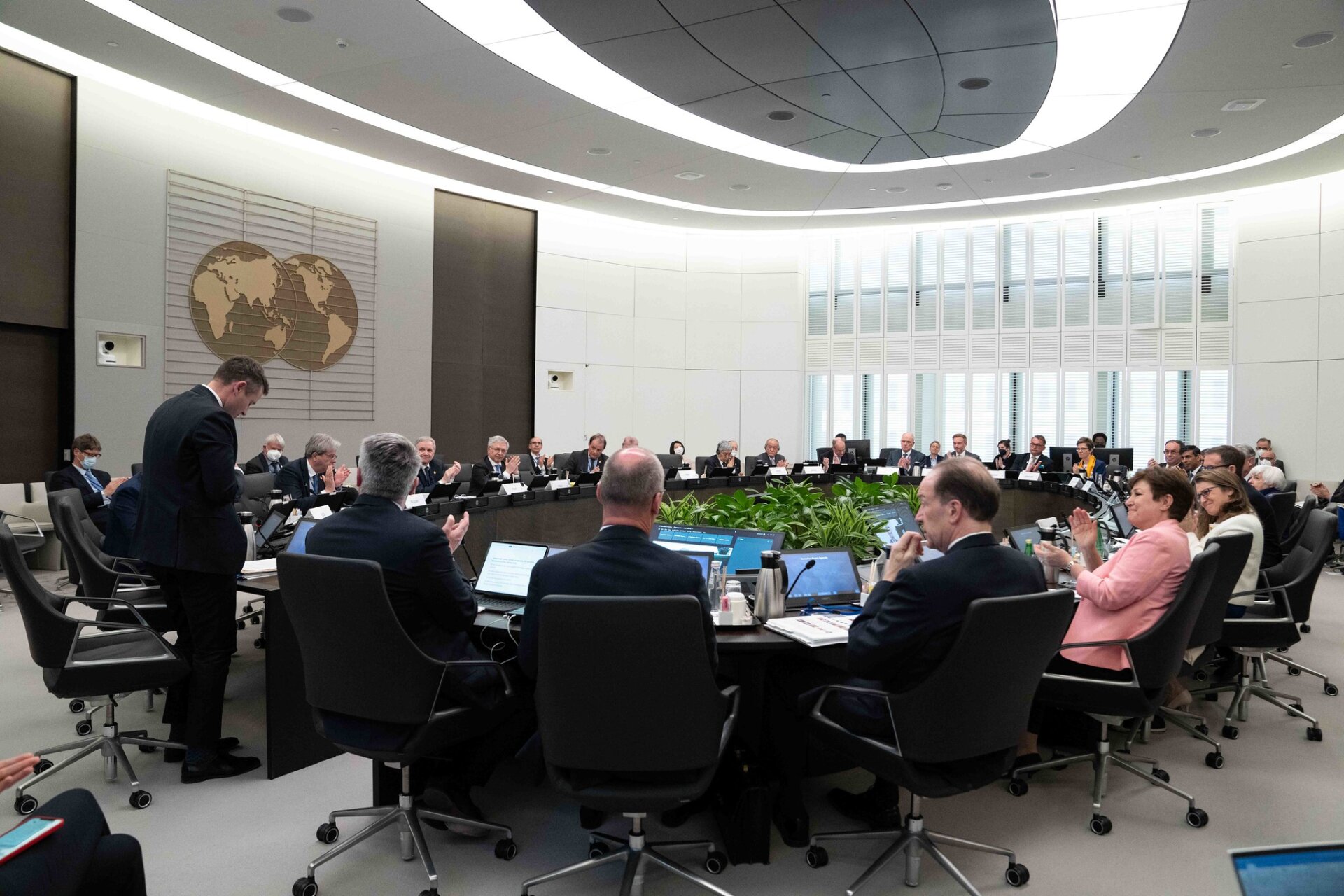G7 Finance Ministers, Central Bank Governors and the heads of the IMF, World Bank, OECD and Financial Stability Board met in Bonn at the end of last week.
The gathering took place amidst escalating crises stemming from Russia’s war against Ukraine: spiking inflation, risk of a food supply chain breakdown, and threats to the stability of the financial system. These overlapping geopolitical and financial crises are set against the backdrop of the climate crisis – and threaten to undermine global efforts to tackle it.
Despite these profoundly challenging circumstances, G7 leaders showed that they understand the scope and scale of the financial crises facing the world – and are prepared to tackle them. Finance Ministers made important commitments to shore up global financial system stability and outlined meaningful if not-yet-sufficient steps to develop the global financial architecture required to fund the net zero transition. But it is unclear whether their harmonised responses to these overlapping financial crises will be sufficient to restore stability and mainstream sustainability – or risk entrenching failed policies of the past.
Crucially, to address short- and medium-term risks to the financial system, G7 Finance Ministers made several pledges to reinforce global macroeconomic stability and support financial market sustainability. G7 leaders acknowledged the “structural economic changes made evident by the pandemic and Russia’s war of aggression against Ukraine” – including foremost the West’s dependence on imported Russian fossil fuels. They committed to “continue to support the greater resilience of critical supply chains, including through diversification, and the investment in alternative resources and new technologies, including critical minerals and renewable energies.”
The G7 leaders placed a very strong emphasis on the role of private finance and the need to strengthen the resilience of financial markets. They described this as “key to mobilising private sector finance to facilitate the whole-of-economy transition along the pathway towards sustainability and net zero.” They warmly welcomed the formation of the International Sustainability Standards Board (ISSB) and particularly its recently published “path to a global baseline” of sustainability reporting standards. However, on the crucial public-private finance interface, there were no steps toward phasing out public subsidies for fossil fuels or bans on public investment in new fossil fuel development.
While G7 Finance Ministers reaffirmed “steadfast commitment” to the Paris Agreement and achieve “domestic emission reduction targets by 2030 and net zero by 2050 or earlier,” few new tools were proposed. A strong emphasis was placed on carbon pricing, “high integrity carbon markets” and addressing “the risk of carbon leakage”. These are important elements of a global carbon trading system, but unlikely to be well-received in the Global South. The new German Government’s favoured policy – an international and open “Climate Club” – received a lukewarm reception from other G7 Finance Ministers.
Perhaps most importantly, the G7 openly acknowledged the need to address systemic shortcomings in the international financial architecture. With over 60% of low-income countries in or at risk of debt distress, it is unsurprising that discussion focused on fair and equitable sovereign debt resolution. Critically, the G7 committed strongly to the Paris Club-endorsed G20 Common Framework for Debt Treatments, which will require private creditors to provide debt treatment in line with the ‘comparability of treatment principle’. This will essentially force vulture funds to comply with public and mainstream private creditors’ debt settlement agreements.
While acknowledging the profound financial system stability risks, G7 Finance Ministers and Central Bankers did not bury their heads in the sand on longer term challenges. They openly acknowledged the pressing need to adapt both financial systems and real economy financing to ensure the transition to net zero. This decisive political leadership is welcome, particularly as the G20 and other multilateral forums are deadlocked. And it could pave the way to more detailed commitments on financial architecture reform at June’s Leaders’ Summit. It remains to be seen whether treasuries and central banks have the firepower and political will to address long-term restructuring of the global financial system for the clean economy revolution.

